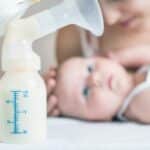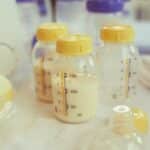Breastfeeding is a time to bond with your baby. It gives you the opportunity to give your little one vitamins and nutrients that remain unrivaled by any baby formula in the market.
While breastfeeding, it’s important to pay special attention to your diet, especially any medications that are taken as well.
Things you eat or drink and medications are taken can be passed on through your breastmilk. This makes it vital to research what is safe while breastfeeding, and what is not.
Foods That Are Safe While Breastfeeding
Most foods you would normally eat, such as fruits, vegetables, and even fast food, are safe while breastfeeding. It is important to pay attention to what you eat to ensure that your baby has plenty of vitamins and nutrients through your healthy diet, though.
Most moms are full of questions regarding what foods are safe to eat while breastfeeding due to restrictions they had while pregnant, rumors, and more.
Make sure that you have accurate information so that you can enjoy the foods that are safe while breastfeeding.
Fruits And Vegetables
Fruits and vegetables are considered safe to eat while pregnant. There has been a concern due to the use of pesticides used at farms and GMO’s being used, but this has not been proven to cause side effects in breastfeeding babies.
View in gallery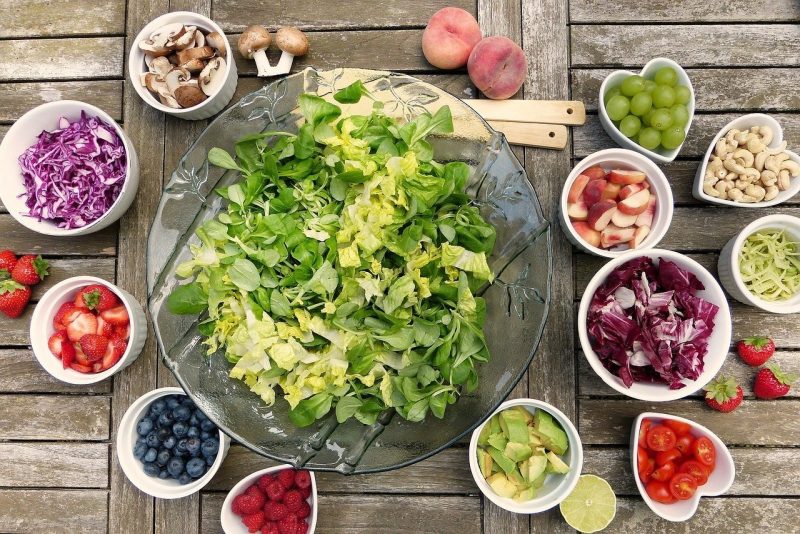
Mothers that are concerned can opt for organic options that are more natural. There is no reason to limit the intake of any food that falls into the fruits and vegetable category.
Peanuts
Rumor has it that if a woman consumes peanuts while breastfeeding, it can make her baby more likely to develop a peanut allergy. However, there is no scientific evidence to support this.
Unless you cannot eat peanuts for any particular reason, it is safe to consume peanuts and peanut related products, such as peanut butter, while pregnant.
Recent research also suggests that introducing them to your baby early on can actually help reduce the risk of developing an allergy later on.
Cow’s Milk
Some people are concerned that by drinking cow’s milk, they may give their little one an upset stomach. Babies are not able to digest cow’s milk the way that adults are, but this doesn’t mean that it’s not safe.
A small portion of the cow’s milk is passed on through breast milk and often does not cause stomach upset in babies. If it does, that is a sign of a milk allergy.
Eggs
Because everything is passed on through breast milk, you might discover that your baby has an egg allergy sooner than moms that are not breastfeeding.
However, this is not due to your consuming eggs or because eggs are not safe while breastfeeding. Instead, it is simply because your baby has an egg allergy. Aside from a situation involving an allergy, eggs are completely safe to eat while breastfeeding.
Lunchmeat
It is often recommended to avoid processed ham and other cold cuts while pregnant, so it can be a relief to find out that it’s acceptable now that you’re not pregnant anymore!
Bite into a ham sandwich or enjoy eating turkey again. Although cold cuts are safe while breastfeeding, it’s important to remember not to overdo things when it comes to processed food.
Cheese
After avoiding certain soft cheeses and unpasteurized cheese for nine months, most women are happy to learn that they can finally indulge after they have their baby.
Cheese is safe while breastfeeding. This is because certain contaminants do not pass from mother to newborn via breast milk.
Runny Eggs
If you enjoy raw or undercooked eggs, it was probably hard to go nine months without them. Now, thankfully, you can go back to eating your eggs however you would like.
View in gallery
This will not harm your baby. However, it is important to remember that this is known to cause salmonella, so most advise against eating undercooked eggs.
Sushi
It is often recommended that pregnant women avoid foods that contain raw meat or fish, such as sushi.
While bacteria and parasites can easily pass on to the baby while in the womb, it is not likely to happen while breastfeeding. This makes sushi safe while breastfeeding.
Spicy Foods
Some mothers are warned against eating spicy food while breastfeeding, but it is not necessary to give your diet an overhaul. The primary reason that this is recommended is that it can have an impact on the taste of breastmilk.
However, the taste might not bother your baby, and can actually prepare them for a more diverse diet as they get older. Instead, enjoy your spicy food. It is perfectly safe while breastfeeding.
“Gassy” Foods
Most breastfeeding moms are also warned against eating so-called gassy foods, such as beans, Brussel sprouts, and certain vegetables, such as broccoli and cauliflower, which are known for causing gas in people.
However, this does not mean that they will instantly cause gas in babies. Instead, enjoy what you would like to eat. If you consume gassy foods and notice your baby getting a bit fussier, then you should limit how many you eat.
Foods That Are Not Safe While Breastfeeding
View in gallery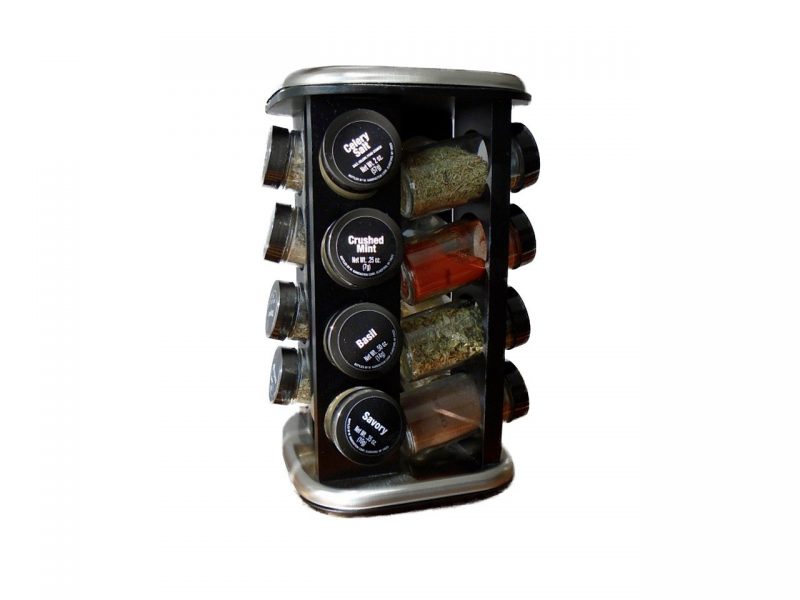
Along with the plethora of foods that are safe while breastfeeding, there are quite a few that are not safe for your baby. These foods do not always have warning labels for breastfeeding mothers.
Instead, you are simply expected to know. That makes it more dangerous to breastfeed before educating yourself about what foods are not safe while breastfeeding.
Fish That Are High In Mercury
Some fish, such as shark, swordfish, and certain types of tuna, is known for having a higher mercury content than others.
If too much of these fish are consumed while breastfeeding, that high level of mercury can be passed on to your little one making these species of fish not safe to eat while breastfeeding.
Babies that are exposed to high levels of mercury often experience cognitive delays, delays in fine motor skills, and much more that can affect them for the rest of their life. Fish that are high in mercury can include:
- Wide-eyed tuna
- Shark
- Crab
- Salmon
- Certain species of Mackerel
- Tilefish
Other fish that have a medium level of mercury include:
- Bass
- Carp
- Tuna
- Perch
- Lobster
- Trout
Please be advised that this is not a comprehensive list of all fish that contain mercury. For more information contact your healthcare provider.
Chocolate
Chocolate is generally safe to consume, but should only be eaten in smaller amounts. Chocolate naturally has caffeine in it, which can disrupt the baby’s sleep patterns.
View in gallery
It can also act as a laxative on occasion, which is also not good for your baby. If you do consume chocolate while breastfeeding, keep an eye out for problems, and be ready to eliminate it from your diet if necessary.
Alcohol
Alcohol is only safe while breastfeeding if specific steps are taken to make sure that it is not passed on to your baby while breastfeeding. If you choose to drink, it’s important to make sure that it’s safe while breastfeeding.
Do not breastfeed until all the alcohol has had time to pass through your body. Most doctors encourage women not to drink at all, or to avoid feeding babies for three hours after a glass of wine.
Pumping does not help speed up the process, either. Instead of taking the chance, either avoid alcohol or feed the baby through another method, such as formula or pre-pumped breast milk, until the alcohol is no longer in your body.
Certain Spices
Certain spices are considered safe to consume while breastfeeding, but there can be some negative effects that breastfeeding mothers need to watch out for.
Specific spices are known for causing a drastic decrease in your milk supply. These include, but are not limited to:
- Sage
- Peppermint
- Parsley
Garlic can also change the flavor of your breast milk. Part of the flavor of your diet will be passed on through breast milk, which is generally not an issue. However, it has been noted that when a mother has a diet high in garlic, babies tend to dislike it.
Too Much Processed Food
Eating too much processed food can hurt your diet. Processed food is known for having a higher salt content, being packed with preservatives, and for not having a high nutritional content. This leads to a diet that is packed with empty calories.
It is fine to eat fast food or processed food on occasion, but this can cause nutritional deficiencies in the long run. Instead, try to limit fast food to once a week, and food with preservatives to once daily.
The primary portion of your diet should consist of healthy foods, fruits and vegetables, and lean meats instead of high-fat meats.
Caffeine
Caffeine is considered safe while breastfeeding, but only in moderation. Too much caffeine can result in dehydration, which can affect milk supply.
It can also make babies fussy, and disrupt sleep patterns. Commonly consumed foods and drinks that have caffeine include:
- Chocolate
- Coffee
- Tea
While other foods may contain caffeine, these are the most common. It is recommended that breastfeeding mothers opt for decaf options, or choose to forgo them all together while breastfeeding.
Foods That Cause An Allergic Reaction In Babies
Although milk, dairy, and eggs might be safe while breastfeeding, it’s still possible that your little one could have an allergic reaction to them. Commons signs of an allergic reaction include:
- Hives
- Trouble breathing
- Eczema or other rashes
- Diarrhea, nausea, and vomiting
- Wheezing
- Throat tightness
- Coughing
- Welts
If your little one experiences these symptoms after you eat a specific food, it could mean that it’s not safe while breastfeeding for your baby. Keeping a food diary can help moms keep track of what they’ve eaten to make it easy to identify food allergies.
- EAT HEALTHIER & ACHIEVE YOUR DIET GOALS FASTER - This food journal will help you get started with a healthy diet, achieve your weight loss goals and get your poor eating habits under control - for good. Set your diet goals, plan your meals upfront, track your calorie and nutrient intake on a daily basis, eat healthy, feel great, have more energy, improve your health and boost your mood! This is what this diet planner is all about.
- PREMIUM QUALITY & FREE QUICK START GUIDE - Unlike other food journals out there, we have created a truly luxurious, premium quality planner with a 5.5 x 8 inch hardcover of extra soft, eco-friendly material, 120 gsm no-bleed, thick pages covering 6+ months of tracking. It also comes with an elastic penholder, closure band and 3 bookmarks. You will be motivated and want to use it more just by the pleasing aesthetics and great quality!
Prices pulled from the Amazon Product Advertising API on:
Product prices and availability are accurate as of the date/time indicated and are subject to change. Any price and availability information displayed on [relevant Amazon Site(s), as applicable] at the time of purchase will apply to the purchase of this product.
Medications That Are Safe While Breastfeeding
View in gallery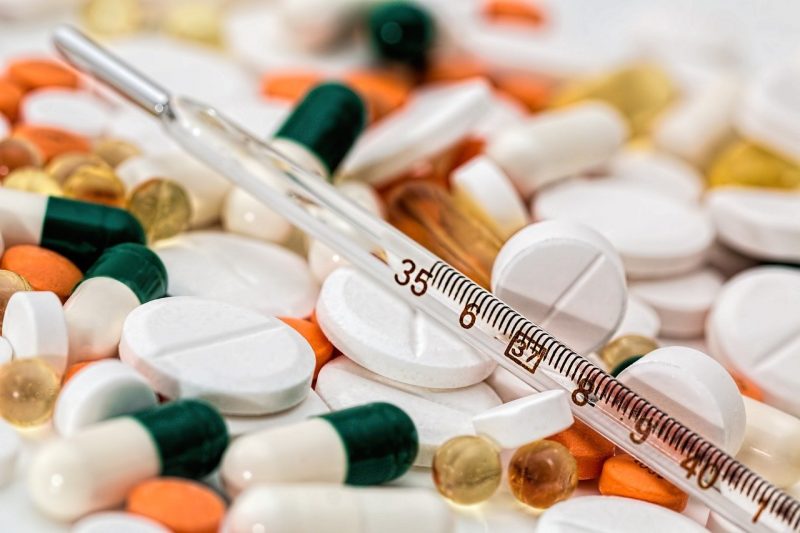
Surprisingly, there are plenty of medications that are safe to take while breastfeeding. Quite a few over-the-counter medications can be taken.
Prescription medications can also be taken. Before heading to the pharmacy, make sure that what you have in mind is safe for your breastfeeding baby.
Multi-Vitamins
Not only are these safe to take while pregnant, but most doctors also recommend that moms continue to take prenatal vitamins while they are in postpartum.
After that, it is highly recommended that breastfeeding moms take a multi-vitamin to ensure that babies get all the vitamins and nutrients that they need. Even if you eat a healthy diet, it’s possible that you might not be getting all the vitamins that you need.
- DESIGNED FOR WOMEN: This multivitamins health supplement is tailor made to meet the everyday nutritional needs of women;* It’s fortified with vitamins and minerals to boost energy, manage weight, strengthen the immune system, and slow down the aging process*
- BETTER OVERALL HEALTH: Look and feel great with this multivitamin for women formula;* It may help facilitate better energy conversion from food while boosting energy levels, and strengthen bones while promoting breast health*
- SAFE & GENTLE: Vimerson Health’s Women’s Multivitamin is formulated with the safest and most gentle ingredients; A friendly supplement with no hormones, or preservatives, also, is soy-free, yeast-free, sugar-free, GMO-free, gluten-free, and dairy-free
Prices pulled from the Amazon Product Advertising API on:
Product prices and availability are accurate as of the date/time indicated and are subject to change. Any price and availability information displayed on [relevant Amazon Site(s), as applicable] at the time of purchase will apply to the purchase of this product.
Over-The-Counter Pain Relievers
Most over-the-counter pain relievers are safe to take while breastfeeding. Normal strength Advil, ibuprofen, and Tylenol are considered safe.
It is not recommended to take extra strength medications or those that are intended to make a person sleep, such as Tylenol PM.
Penicillin
Penicillin is commonly prescribed in the forms of amoxicillin and ampicillin as a method to treat infections. It is safe to use these as prescribed when necessary while breastfeeding.
Naproxen
Naproxen is safe while breastfeeding, but not for long term use. If Naproxen is used on a short term basis, and under the supervision of a doctor, it is not known to cause long term effects in babies.
However, if a long term solution is necessary, discuss other options with your health care provider.
Allergy Medicine
Most allergy medicines that contain Loratadine and Fexofenadine are considered safe for use.
For example, these can include but are not limited to, Claritin, Allegra, and Alavert among others. It is important to discuss the use of any medicine with your doctor before taking it.
Decongestant Medications
While these are considered safe if okayed by a doctor, breastfeeding mothers should note that medications that contain pseudoephedrine are also known to decrease your milk supply.
This affects some mothers, but not others, so it is important to keep an eye out for this.
Birth Control Pills
It’s safe to continue using birth control medications once a month after giving birth to a child.
View in gallery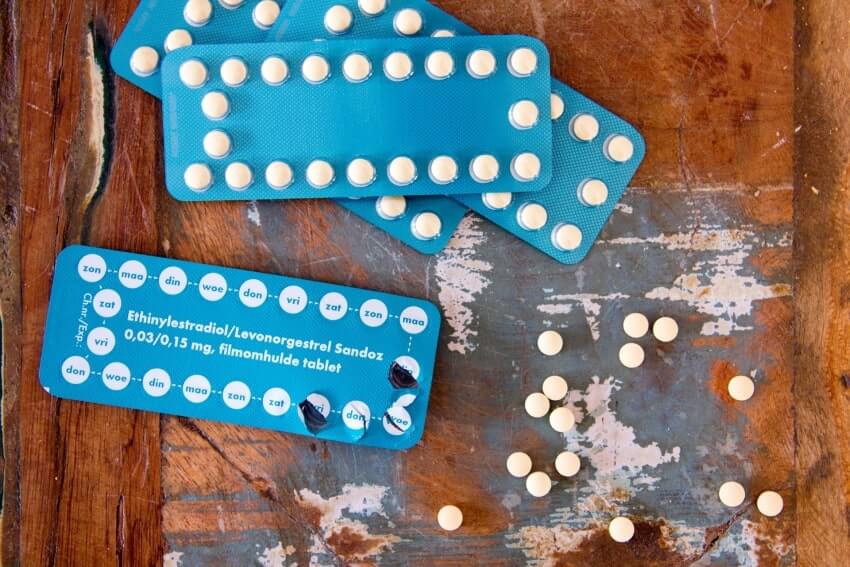
Previous research suggested that women should stick with progestin-only birth control pills, but more recent research suggests that combined hormonal pills do not cause a decrease in milk supply.
Sore Throat Sprays
Most sore throat sprays are considered safe while breastfeeding. This is often not intended to be ingested in large quantities, or at all. Instead, sore throat sprays work to numb the throat, alleviating pain.
None, if any, of this small amount will be excreted in breast milk.
Cough Drops
When you’re sick, there is nothing more soothing than a cough drop to give you short term relief. Most cough drops are considered safe while breastfeeding, but it’s important to note the active ingredients.
Too much menthol can reduce the amount of milk produced.
- VOCAL HEALTH REMEDY: Great For Overused and Strained Voices, Hoarse, Sore, and Dry Throats
- POUCH OF DROPS INCLUDES: 20 all-natural, menthol-free, herbal lozenges formulated with Manuka honey Aniseed drops
- ALL-NATURAL, MADE IN USA: We dont put anything into our drops that you would not want in your body. Our remedies are made in our GMP certified facility
Prices pulled from the Amazon Product Advertising API on:
Product prices and availability are accurate as of the date/time indicated and are subject to change. Any price and availability information displayed on [relevant Amazon Site(s), as applicable] at the time of purchase will apply to the purchase of this product.
Cough Medicine
Most forms of Robitussin are safe while breastfeeding. However, it’s important to note that different types of cough medicine will have different ingredients, even if they are made by the same brand.
Before taking a new medicine, consult with your doctor to guarantee that it’s safe while breastfeeding.
Laxatives
A minimal amount of this medication is absorbed into the body. Instead, it works by traveling through your stomach and helping things along the way. Because of this, it is generally safe while breastfeeding. As with everything, moderation is key.
Postpartum mothers that find they are chronically constipated should make sure that they are properly hydrated and contact their physician.
Other Medications
There are a plethora of medications available on the market, making things that much harder while trying to determine what is safe while breastfeeding.
These medications have been determined to be safe, but please remember that this is not a complete list or evaluation of every medication on the market:
- Valtrex
- Zovirax
- Low dose aspirin if recommended by a doctor
- Marcaine
- Methyldopa
- Cephalexin (can cause diarrhea and stomach upset in breastfeeding infants)
- Non-hormonal contraceptives
- Prednisone
- Magnesium Sulfate
- Monistat
- Lopressor
- Amoxicillin
- Afrin
- Sinex
- Allegra
- Albuterol
- Insulin (breastfeeding mothers may require a lower dosage)
- Calan
- Coumadin
Medications That Are Not Safe While Breastfeeding
View in gallery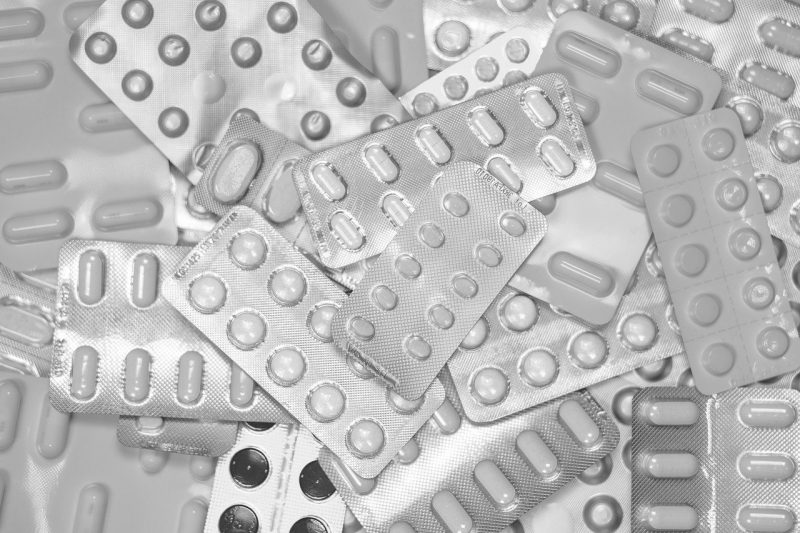
While many medications are perfectly safe while breastfeeding, there is an even longer list of those that are not. Medications can be passed on to the baby through breast milk, which can be fatal.
If not fatal, it can cause significant damage to the brain and other vital organs. The best-case scenario is that the baby will be sick, and then make a full recovery.
Even with this scenario, no one wants their little one to be sick or in the hospital. Make sure that any medicine taken will not cause harm to your baby before taking it by researching the medication or by asking your doctor.
Zofran
This medication is typically prescribed for nausea and vomiting in patients.
While it is typically prescribed to those that are undergoing chemotherapy, doctors have been found to prescribe it to other patients experiencing chronic nausea due to other medical conditions, such as kidney stones.
However, studies have revealed that this medication is found in breast milk in animals. There are no studies to confirm or deny whether it has an impact on breastfeeding babies.
Prescription Opioids
Some doctors prescribe opioids on a short term basis, but this can even be harmful to babies. Opioid use during pregnancy is one of the most common reasons for NAS, which is short for Neonatal Abstinence Syndrome.
These medications can also be harmful to babies if they are used while breastfeeding because they are not safe. The use of these medications can result in severe developmental delays, addiction, hospitalization, and damage to vital organs.
If your doctor prescribes these medicines, ask them for a new medication:
- Tramadol
- Codeine
- Oxycodone
- Hydrocodone, or Vicodin
Medications That Are Both Decongestant And Antihistamine
Most mothers note that you can take a decongestant or an antihistamine, but it’s important to note that there are combination products that are not safe while breastfeeding.
If a product is designed to be both an antihistamine and a decongestant, it contains a significantly higher number of ingredients and is not safe for the baby even in a small amount.
Aspirin
Aspirin is not safe while breastfeeding, but this is found in many over the counter medications. Pain relievers that specifically contain aspirin should not be taken.
Neither should other medications that have this as an ingredient, such as Pepto Bismol. It is important to read the label carefully or to ask your local doctor or healthcare provider before taking any over the counter medication to ensure it does have aspirin in it.
View in gallery
Extra Strength Medication
Extra strength medications, including extra-strength Tylenol, should be avoided. Even when taking this medication at a regular dose, the lowest amount possible should be taken.
This is not limited to Tylenol. Extra strength pain relievers of every brand should be avoided, even if the medication is considered safe at a standard dose.
Anti-Depressants
While some anti-depressants or psychotic medications are considered safe while breastfeeding, such as Zoloft, many are not. When making this decision, physicians often look at the strength of the ingredients in the medication.
Very small amounts of this medication will be found in breastmilk, and make it’s way to your infant.
Because of this, most recommend taking medications with smaller amounts and avoiding time-release medications to ensure that your little one is not harmed.
Long-Acting/Extended Release Medication
These types of medication are not recommended for breastfeeding moms. This is because they are in the body longer, which makes them more likely to show up in breast milk.
Shorter acting medications, however, are eliminated from the body quicker. They also give mothers the opportunity to take them when it is convenient and safer for both them and their babies.
For example, most moms prefer to take medicine at nighttime when possible after the nightly feeding and before their baby’s bedtime.
This is because they will not be feeding their baby again until morning, so the medications will not be in their body anymore.
Theophylline
This medication is typically used to treat both asthma and bronchitis. However, because it is a stimulant and is passed on to the baby. It can cause stimulation in babies, and this can be more severe in pre-term and smaller babies.
If using this medication, make sure to keep an eye on your little one while taking it. If possible, ask your doctor if another medication is available.
Combination Treatments
Individuals that are using a combination of treatments, which is frequently seen in cases of epilepsy and other conditions, may have a higher intake of medications. Because of this, it does pose a certain risk to breastfeeding infants.
It is important to discuss individual treatments and to inquire about each medication prescribed to make sure that your baby is okay.
Antihistamines
Antihistamines fall into both categories because they are generally considered safe while breastfeeding, but can also cause side effects in babies. Breastfeeding babies may become drowsy, and can be more fussy than usual.
Because of this, you should take these directly after feeding your little one so that it is at least a few hours before they are fed again. Watch for signs of severe drowsiness, and contact your pediatrician immediately if concerned.
Ask Your Doctor About Every Medication
Ask your doctor about every medication that you are prescribed. Yes, doctors should know that their patient is breastfeeding, and they should review that before writing a prescription, but doctors also make mistakes. They are human too!
View in gallery
It’s important to ask your doctor about each medication you are prescribed to make sure that it is safe while breastfeeding. It’s always better to err on the side of caution, especially when concerning your baby.
Always Take The Least Amount Of Medicine Possible
When taking any medication, take the least amount possible. This includes pain relievers, cold medicine, and all over-the-counter medications as well.
There are a lot of medications that are considered safe while breastfeeding even though they are passed on through breast milk. This is because the amount is so low that it does not cause any harm to the baby.
The less medicine you take, the less risky it is. It’s also important to note that just because there are no scientific studies to confirm that a medication or over the counter medication is not safe does not mean that it is safe while breastfeeding.
Always Ask If You Don’t Know
If you aren’t sure whether you can eat a certain food or take a specific medicine, consider it unsafe until you ask someone.
For concerns regarding food, you can ask your doctor, pediatrician, or obstetrician. You can ask the same people about medications, but sometimes that can be inconvenient when you’re in line at the pharmacy and in desperate need of over-the-counter therapy.
In this situation, you can ask the pharmacist. They can usually tell you what medications are safe while breastfeeding, and which ones to avoid.
Please note that I’m not a doctor, and this article should be used in place of a doctor’s advice. If you are concerned or have questions, contact your healthcare provider.
